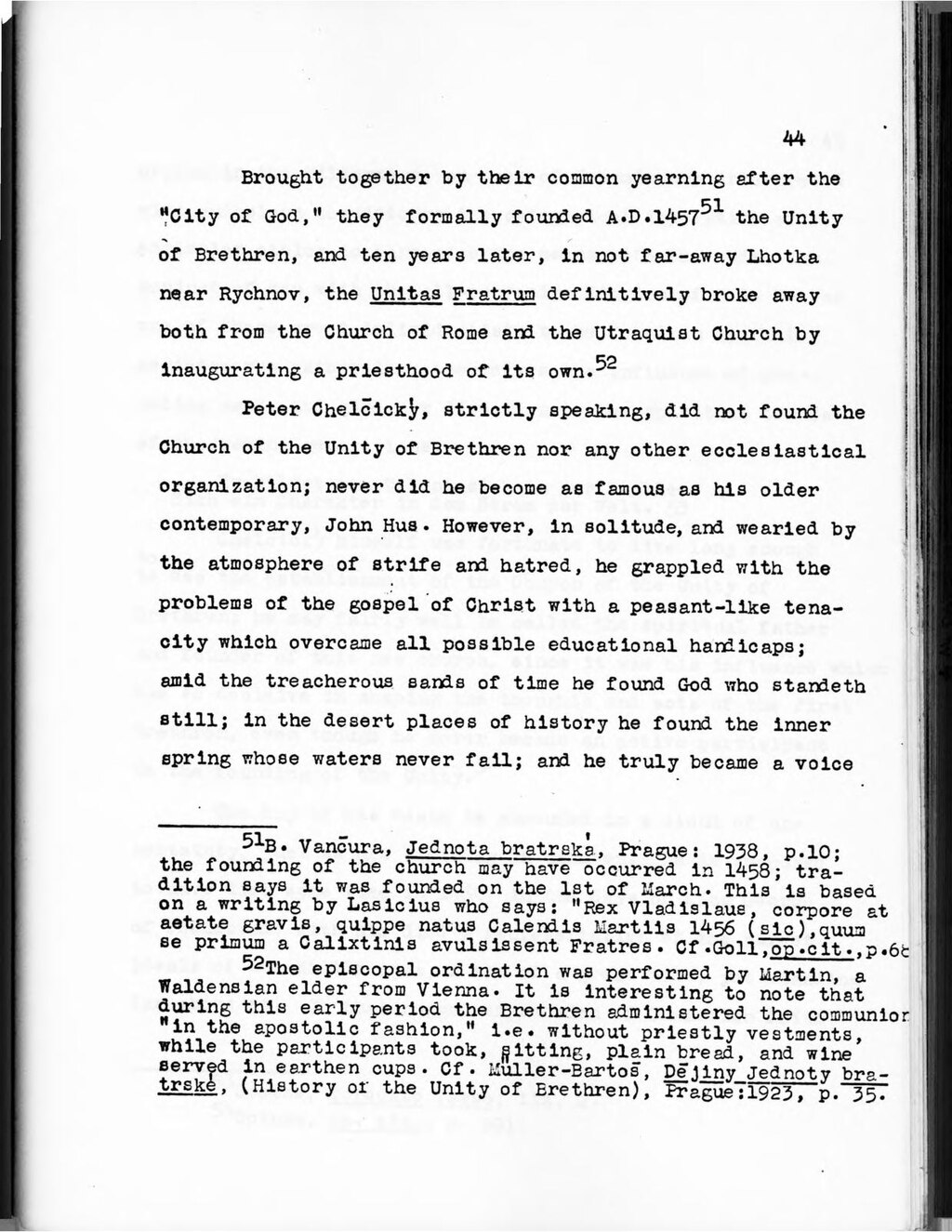Brought together by their common yearning after the "City of God," they formally founded A.D.145751 the Unity of Brethren, and ten years later, in not far-away Lhotka near Rychnov, the Unitas Fratrum definitively broke away both from the Church of Rome and the Utraquist Church by inaugurating a priesthood of its own.52
Peter Chelc̄icky̍, strictly speaking, did not found the Church of the Unity of Brethren nor any other ecclesiastical organization; never did he become as famous as his older contemporary, John Hus. However, in solitude, and wearied by the atmosphere of strife and hatred, he grappled with the problems of the gospel of Christ with a peasant-like tenacity which overcame all possible educational handicaps; amid the treacherous sands of time he found God who standeth still; in the desert places of history he found the inner spring whose waters never fail; and he truly became a voice
51 B. Vanc̄ura, Jednota bratrska̍, Prague: 1938, p.10; the founding of the church may have occurred in 1458; tradition says it was founded on the 1st of March. This is based on a writing by Lasicius who says: "Rex Vladislaus, corpore at aetate gravis, quippe natus Calendis Martiis 1456 (sic), quum se primum a Calixtinis avulsissent Fratres. Cf.Goll, op.cit., p.68.
52 The episcopal ordination was performed by Martin, a Waldensian elder from Vienna. It is interesting to note that during this early period the Brethren administered the communion "in the apostolic fashion," i.e. without priestly vestments, while the participants took, sitting, plain bread, and wine served in earthen cups. Cf. Müller-Bartos̄, Dējiny Jednoty bratrske̍, (History of the Unity of Brethren), Prague:1923, p. 35.
